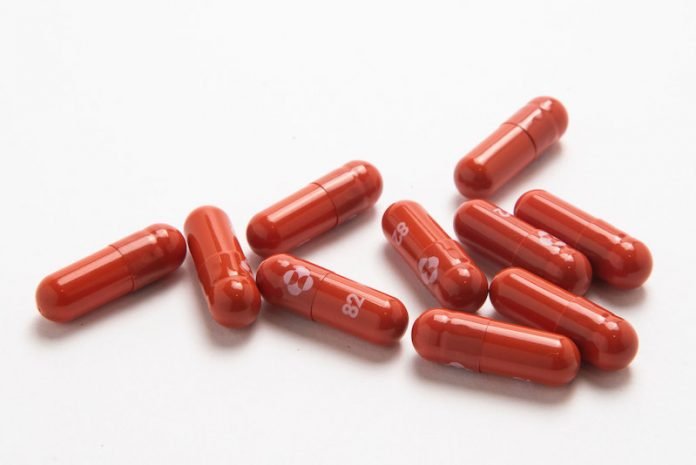
As SARS-CoV-2 continues to spread and mutate, it’s important to identify new treatment options.
Molnupiravir is an investigational oral antiviral being developed for the treatment of COVID-19, and has been submitted for review by the U.S. Food and Drug Administration.
In a new study from…, researchers have engineered enzymes to help manufacture the pill, resulting in a much shorter and higher-yielding synthesis than current methods.
Originally developed to treat influenza, molnupiravir works by causing viruses to make errors when copying their own RNA, introducing mutations that inhibit replication.
Recently, clinical trial findings indicated that molnupiravir reduced the risk of hospitalization and death from COVID-19 for newly diagnosed, at-risk patients and that it worked equally well against different SARS-CoV-2 variants.
The team set out to develop a shorter, higher-yielding and sustainable way to synthesize the molecule.
The researchers developed a three-step synthesis of molnupiravir from a sugar molecule called ribose.
They identified enzymes or chemical treatments to sequentially add the appropriate chemical groups to a ribose to generate the molecule.
For the second step of the synthesis, the team identified bacterial enzymes that weakly catalyzed the desired reactions. Using in vitro evolution, they greatly enhanced these enzymes’ activities.
The new synthetic route, which also included a phosphate recycling strategy, was 70% shorter and had a seven-fold higher overall yield than the original route.
If you care about COVID, please read studies about this drug may reduce COVID-19 death by one third and findings of this arthritis drug may fight severe COVID-19.
For more information about COVID and your health, please see recent studies about scientists find hundreds of possible drugs to treat COVID-19 and results showing that antiviral drug used to treat cat coronavirus may also treat COVID-19.
The study is published in ACS Central Science. One author of the study is John McIntosh.
Copyright © 2021 Knowridge Science Report. All rights reserved.



